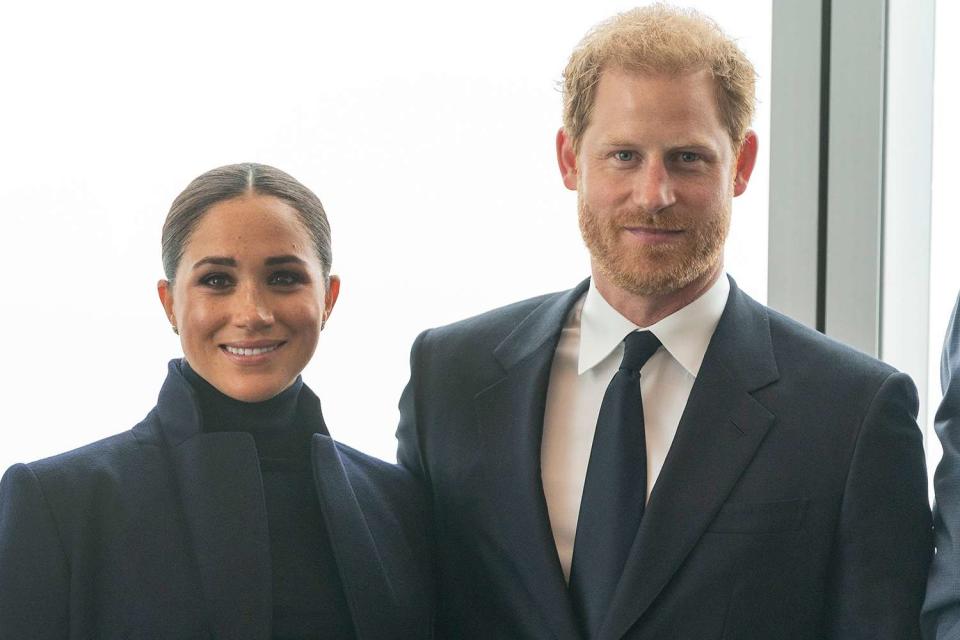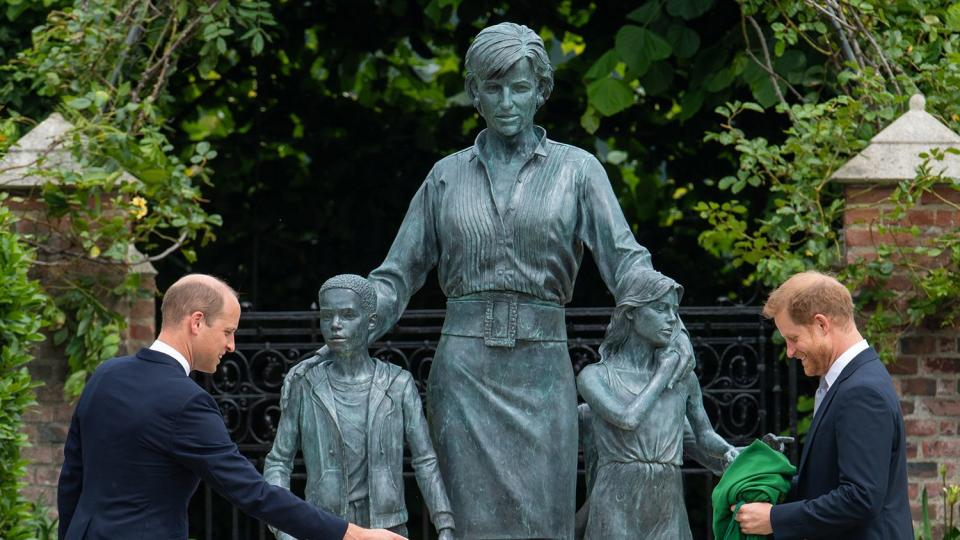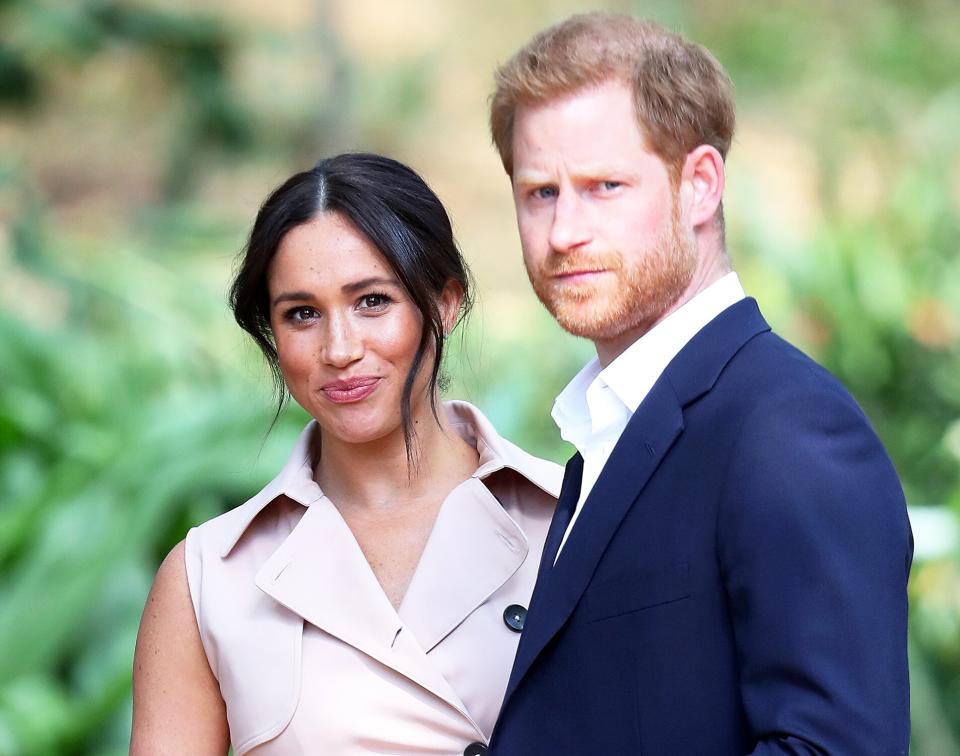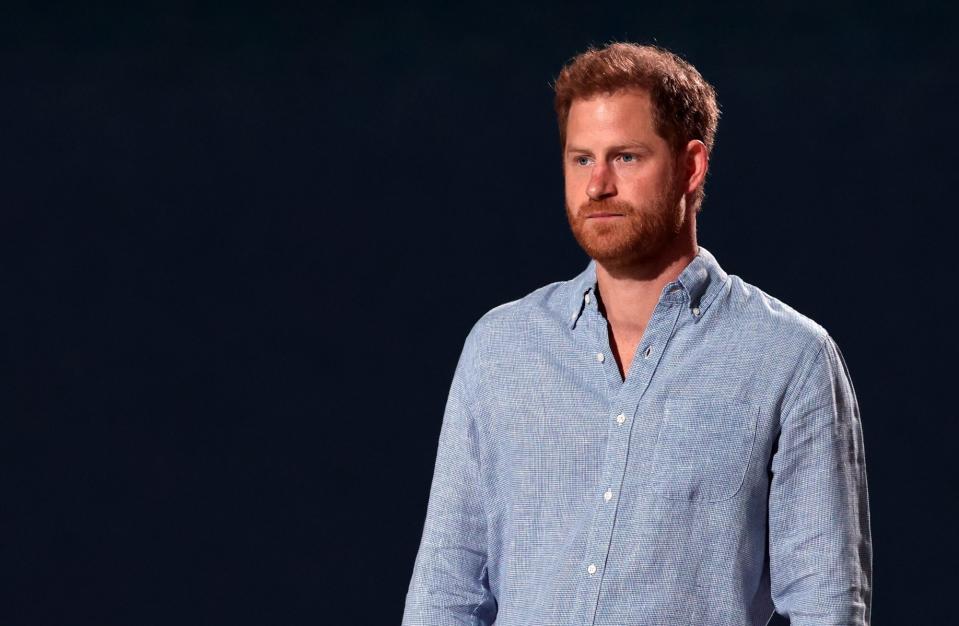Prince Harry Tells London Court He 'Does Not Feel Safe' Bringing Archie and Lilibet to the U.K.
- Oops!Something went wrong.Please try again later.
- Oops!Something went wrong.Please try again later.
Prince Harry "does not feel safe" bringing his children to the U.K. following the loss of his taxpayer funded police protection, his legal team told the High Court in London on Friday.
Speaking at a preliminary hearing to have the protection reinstated — which Prince Harry did not attend in person — the Duke of Sussex's attorney Shaheed Fatima expressed Harry's concerns over the security arrangements put in place when he and Meghan Markle stepped back from royal duties in January 2020.
Following their bombshell announcement, Harry and Meghan lost their public-funded protection in the U.K. and have privately paid for their own security in the U.S. They were also later told that they could not pay for U.K. police protection out of their own pockets.
This means that if the Duke and Duchess of Sussex return to the U.K. with son Archie Harrison, 2, and daughter Lilibet Diana, 8 months, they will not be entitled to state-funded protection and the deep level of security intelligence that comes with it.
RELATED: Prince Harry Seeks Judicial Review for Right to Pay for His Family's U.K. Police Protection

ANGELA WEISS/AFP via Getty Meghan Markle and Prince Harry
"This claim is about the fact that the claimant does not feel safe when he is in the U.K. given the security arrangements that were applied to him in June 2021 and will continue to be applied to him if he decides to come back," Fatima said at the Royal Courts of Justice, reports The Guardian.
"And, of course, it should go without saying that he wants to come back: to see family and friends and to continue to support the charities that are so close to his heart," the lawyer added. "Most of all, this is, and always will be, his home."

Dominic Lipinski - WPA Pool/Getty Prince William and Prince Harry
Prince Harry's concerns are believed to date back to his most recent visit to the U.K. in July 2021, when he joined brother Prince William for the unveiling of a statue to their mother, Princess Diana, in the gardens of Kensington Palace.
After a later charity event, Prince Harry's car was reportedly chased by photographers through the streets of the British capital.

Chris Jackson/Getty Prince Harry and Meghan Markle
In September, Harry decided to address the issue by applying for a judicial review of the security arrangements, a legal challenge to the lawfulness of decisions taken by a public body. Friday's hearing represents the initial stages of this process and may lead to lengthier court proceedings.
His application has particular resonance in 2022 as Prince Harry and Meghan may visit the U.K. to celebrate the historic Platinum Jubilee, marking 70 years on the throne, for his grandmother, Queen Elizabeth, 95.
Prince Harry, 37, has also previously spoken at length about the emotional scars created by his mother's treatment at the hand's of the tabloids prior to her tragic death in 1997.

Kevin Winter/Getty Images for Global Citizen VAX LIVE Prince Harry
Can't get enough of PEOPLE's Royals coverage? Sign up for our newsletter to get the latest updates on Kate Middleton, Meghan Markle and more!
The issue of security is, however, a thorny one for the U.K. government. At present, only the Queen, Prince Charles, Camilla, Duchess of Cornwall, Prince William and Kate Middleton receive 24-hour police protection.
Other "working" royals such as Princess Anne, Prince Edward and Sophie, Countess of Wessex, only receive state protection when they carry out official engagements.
Meanwhile, the Queen's grandchildren (including Zara Tindall, Princesses Beatrice and Princess Eugenie) do not receive any government-funded protection at all, while Prince Andrew lost his own right to protection when he stepped back from royal duties in November 2019.

